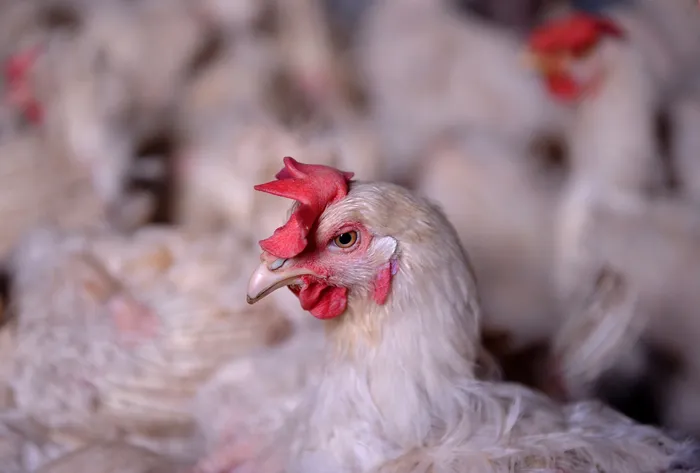
With the recent ban on Brazilian chicken imports, South Africa faces a potential crisis as 30,000 jobs in the food sector hang in the balance, and households brace for soaring food prices.
Image: File
Following a ban on imports of chicken and related products from Brazil earlier this month, an industry expert has said, in addition to nutritional concerns over a lack of this protein source, an estimated 30 000 jobs in food processing, logistics, and manufacturing are at risk.
Georg Southey, manager at Merlog Foods, added that the disruption in inexpensive poultry supplies will also cause price spikes in low-cost proteins, further squeezing struggling households.
This followed news in the middle of last month that the Ministry of Agriculture and Livestock in Brazil had reported an outbreak of highly pathogenic avian influenza. This was followed, on May 22, by the South African Department of Agriculture announcing that South Africa had suspended trade of live poultry, eggs and fresh (including frozen) poultry meat, while no new import permits will be issued.
The Association of Meat Importers and Exporters (AMIE) has said that this was the first recorded outbreak of highly pathogenic avian influenza within Brazil’s commercial poultry sector. It noted that Brazil supplies over 84% of South Africa’s poultry imports.
AMIE CEO, Imameleng Mothebe, said: “A full ban on Brazilian poultry imports to South Africa will have devastating consequences for the South African poultry meat processors and consumers, particularly the most vulnerable in our society.”
Southey said that this ban could lead to “one of the most severe food security crises in recent times” and threatened society’s most vulnerable, including children reliant on school feeding schemes.
Given that the outbreak is confined to a single province in Brazil, Rio Grande do Sul, Southey called on government to “act with urgency” to accept imports from all other provinces that remain unaffected by the virus. He said that this strategy was internationally accepted.
Brazil also used to supply mechanically deboned meat used in polony, viennas, and sausages. “These provide affordable protein to millions of South Africans,” said Southey, adding that neither local producers nor other countries could meet demand in the short-term.
Warning that South Africa only had 2.5 weeks of food reserves in some categories, Southey said, without alternative measures, there is likely to be a shortage of 400 million meals per month, or seven meals a month per person.
“Two weeks of import shipments have already been lost and a further 100 million meals will be lost every week,” he said.
Brazil has already instituted surveillance measures and is sharing real-time data, said Southey. Neighbouring country Namibia and Japan have adopted regionalisation protocols in similar situations, he added.
Related Topics:
